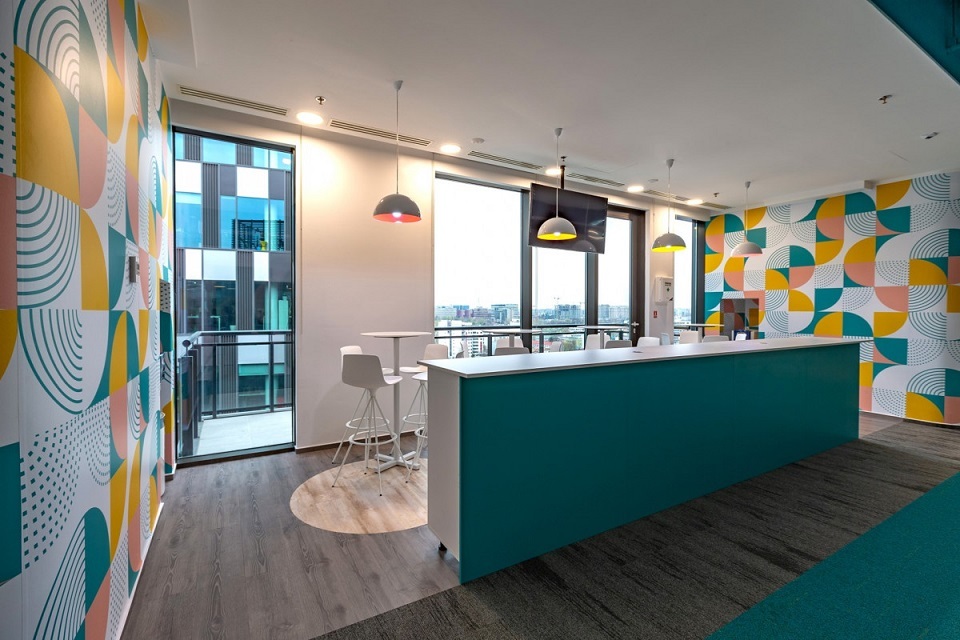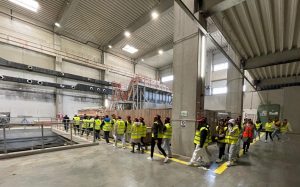Office employees have higher expectations of mental health and well-being at work: study

The pandemic is reshaping employees’ expectations and attitudes toward office work, according to Skanska’s third Central and Eastern European survey. Faced with the new pandemic reality in which the preferred way of working is hybrid, more than half of people are already working in the office alone, and employees expect more support from companies when it comes to mental health and well-being. work. The study shows what are the preferences of employees in Romania, Poland, Hungary and the Czech Republic regarding the new professional context and what are the current issues that employers should take into account, from the perspective of employees.
Skanska conducted a new study in the four countries of the Central and Eastern European region (Romania, Poland, Hungary and the Czech Republic) to assess employees’ attitudes towards work at home but also in the office, in the context of the pandemic.
Thus, at the regional level, more than half of the respondents (52 percent) claim, at the time of the study, that they work only from the office, the percentages increasing compared to the results of May 2021, which showed that only 48 percent of employees did same thing. In Romania, 45 percent of the employees surveyed claim that they only work from the office.
According to the results of the study, the social and professional relations, as well as the integration in teams of the new employees are strongly influenced by the time spent in the office. Additional activities to encourage socializing, meeting interesting people, massages, and sports activities at work would motivate people to work more often in the office.
Other aspects that are becoming more and more important for employees, especially for those in Romania, are the aspects related to mental health and well-being.
According to the results, 45 percent of Romanian employees work only from the office (compared to 48 percent in May 2021), while 20 percent work exclusively from home. 16 percent of employees consider the ideal working model to be the hybrid one, with 3-4 days a week worked from the office and the rest from home. Only 10 percent of Romanian employees would choose to spend 1-2 days working in the office and the rest at home.
With regard to the choice of working days at the office and at home, every third employee at the regional level claims that the hybrid model is imposed by the employer with limited possibilities for change. However, Romania, together with Hungary, is the most flexible country in the region in terms of the work model imposed by the employer. One third of the Romanian respondents are free to decide the working days at the office and at home.
The data show that Romania is the best organized country in terms of office work planning systems – 42 percent of respondents say that in their company there is a planning tool that helps organize the activity. They show how important and effective are the platforms that allow the management of daily work.
For Romanian employees, limited days of office work have a significant negative impact on issues such as the integration of new employees in teams (44 percent), social and professional relations between employees (41 percent), teamwork (37 percent) and involvement in joint activities after the end of the program (37 percent). At the same time, the negative effects are felt when it comes to recruiting new employees (31 percent).
Regarding working from home, Romanians associate it positively with the feeling of freedom (32 percent), comfort during working hours (26 percent) and a state of satisfaction (26 percent). It also gives them satisfaction (20 percent) and a sense of security (20 percent).
On the other hand, Romanian employees perceive working from home more negatively than others and are, more than others, affected by the feeling of loneliness (29 percent), frustration (25 percent) and job insecurity (25 percent) , longing / lack (20 percent), sadness (19 percent) and disappointment (19 percent).
Among the measured aspects, working from home has a more positive impact in terms of work-life balance, especially for Romanians and Hungarians. If the results of the previous study showed that working from home has a rather negative impact on this aspect, 52 percent of CEE employees and 47 percent of Romanians now claim that working from home allows them to better organize their time with family.
This shows the need to consider and implement time-saving solutions in the workplace.
Even though employees have learned to manage their work-life balance more effectively, the results show that working from home can have a negative impact on both employees’ feelings and teamwork and professional social relationships. The office continues to play an important role when it comes to integration, building culture and strengthening teams.
At the group level, over 40 percent of respondents believe that working from home has a positive effect on their mental health. However, according to the survey, employees often face feelings of loneliness, frustration and insecurity at work. Working from home gives employees a sense of freedom and peace, which means that employers should pay special attention to mental health and create a job tailored to their needs.
Romanians are among the most concerned when it comes to this issue. Romanian employees (83 percent) along with Hungarian employees (85 percent) are the most convinced that employers should offer employees more support in terms of mental health.
Among Romanians, paid leave in case of professional burnout (47 percent) and free individual meetings with a psychologist (44 percent) are the most desired solutions from companies to support the mental health of office workers. 32 percent of Romanian employees would like to have training sessions regarding mental health at work and 26 percent feel the need to have access to a mediator in case of conflicts between employees.













